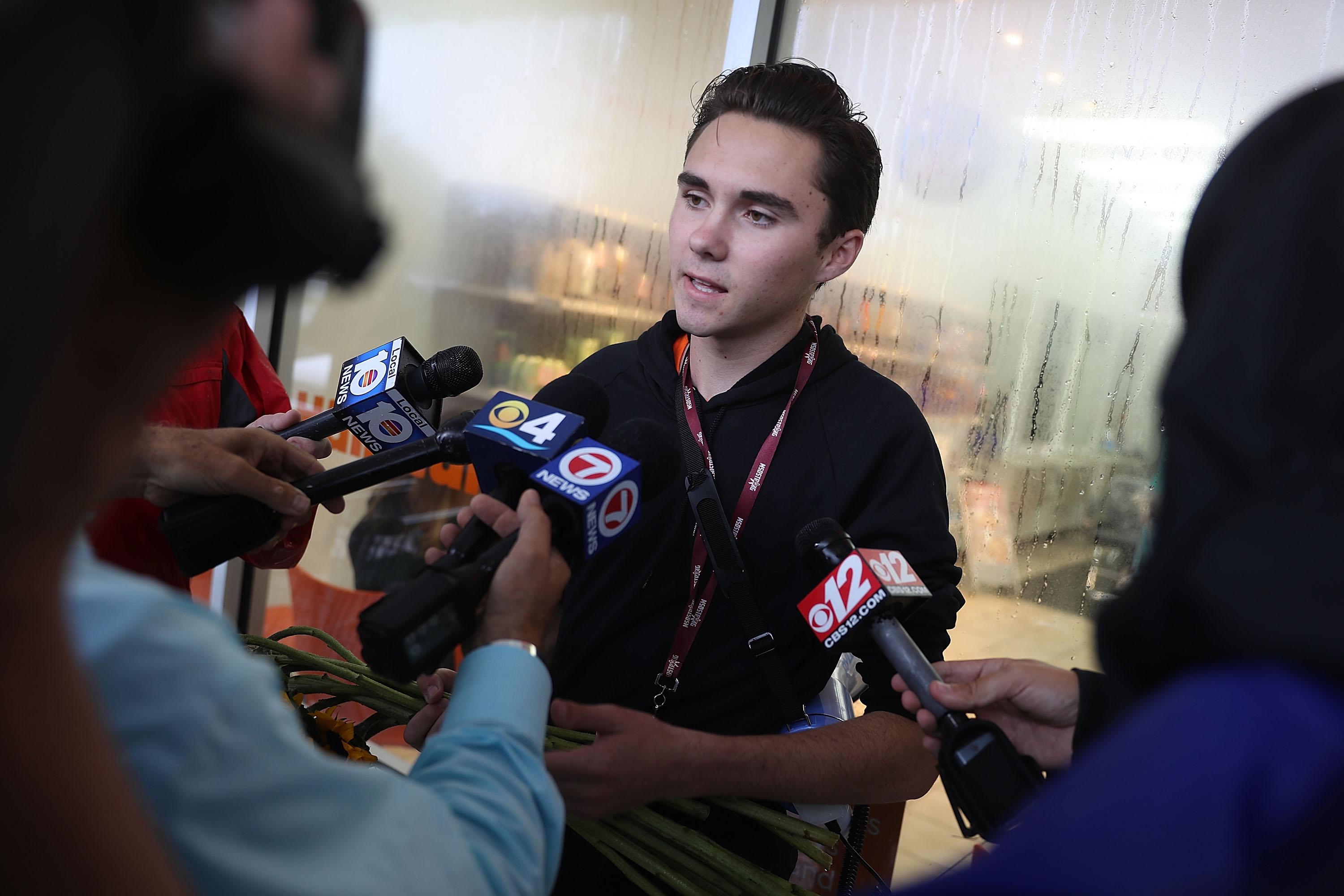Internet hatred directed toward David Hogg, the Parkland student leader most ferociously targeted by right-wing internet trolls and opponents of gun control, appeared to spill into real life on Tuesday when a call to the Broward County sheriff’s office led to Hogg’s house being surrounded by heavily armed police officers.
The hoax call claimed that hostages were being held at Hogg’s address, and police arrived at Hogg’s home only to discover that the call had been fake. Hogg, who graduated Sunday and will soon participate in the Parkland students’ summer activism tour, is safely in D.C., to receive the Robert F. Kennedy Human Rights Award.
The practice, known as swatting, in which a person “pranks” someone by telling police that there is a hostage situation at the victim’s address, has already proved highly dangerous. In 2017, a hoax emergency call over a $1 wager during a Call of Duty game led Kansas police to shoot and kill a 28-year-old father of two. The Los Angeles man suspected of making the call was arrested and charged with involuntary manslaughter. The practice has since been treated more seriously.
The FBI estimated in 2013 that there were 400 incidents of swatting each year, and Rep. Katherine Clark of Massachusetts, who has introduced several pieces of legislation to deal with the practice and who has, more recently, been a victim of swatting herself, estimates that the number is now higher. Miley Cyrus, Ashton Kutcher, Justin Bieber, Lil Wayne, Rihanna, the “Damn Daniel” guy, video game developers, and many regular people on the internet have been the victims of swatting.
Authorities have said they are investigating the call.
